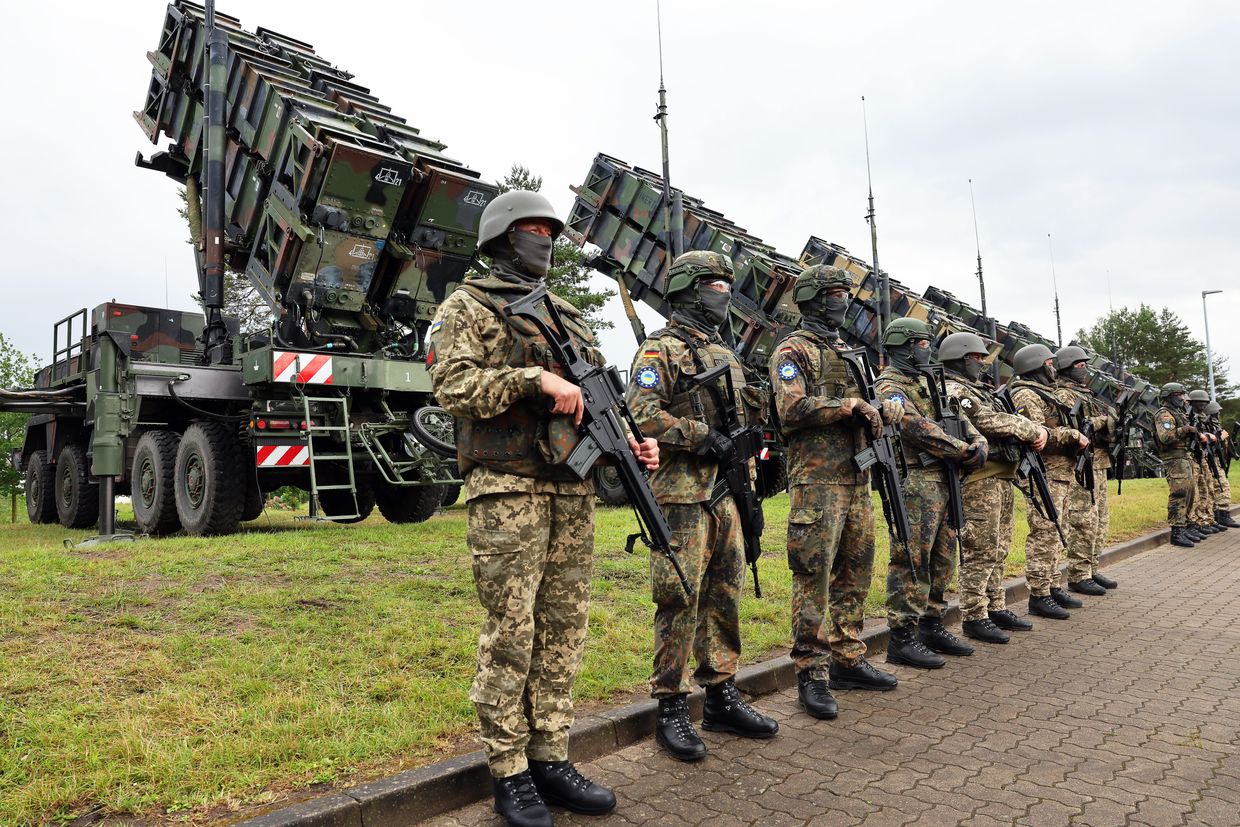'Kyiv could be Silicon Valley' — New 50-million-euro startup fund will develop Ukraine’s tech-ecosystem
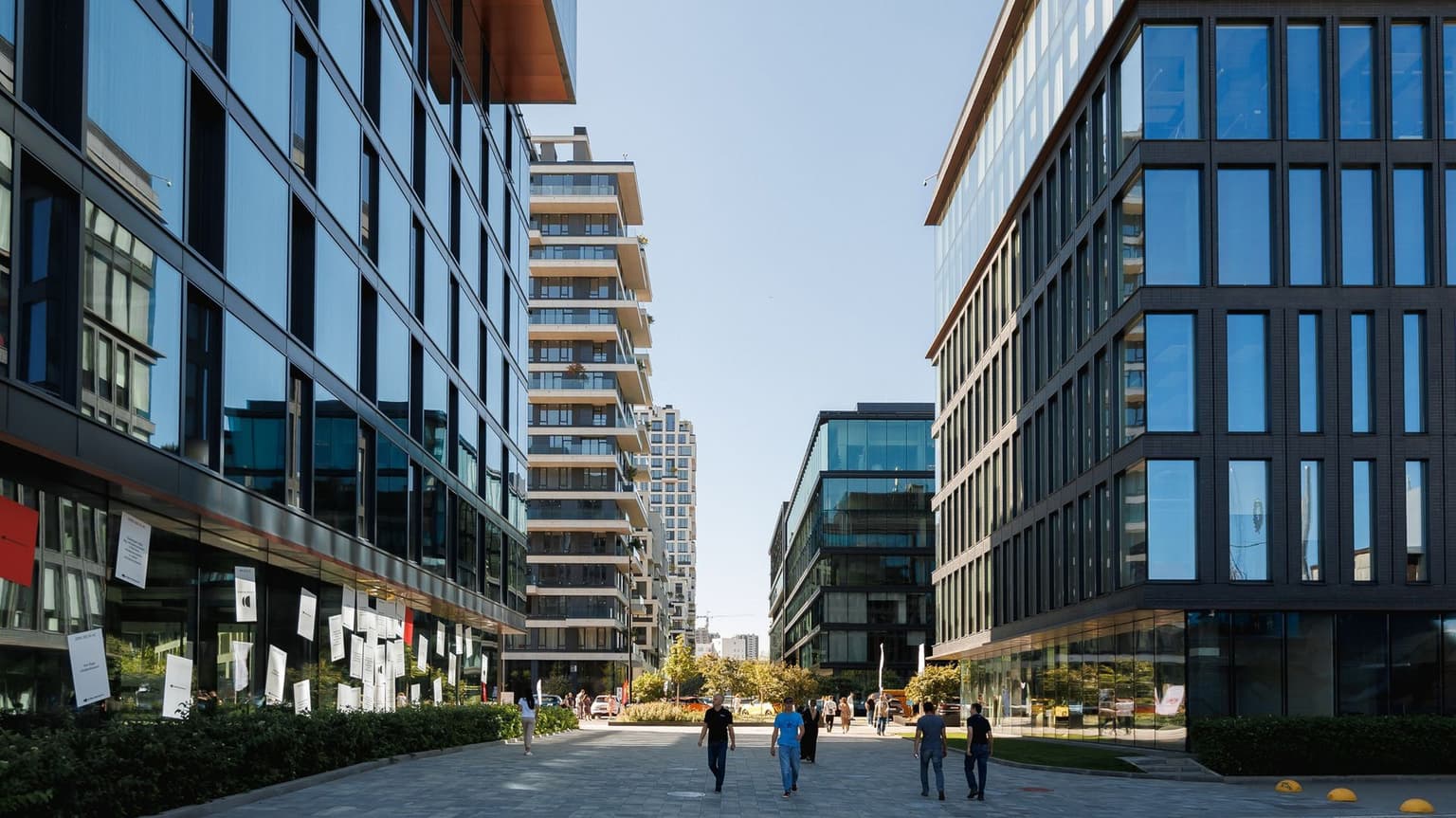
People walk through the UNIT.City, a tech hub in Kyiv, Ukraine in an undated photo. (UNIT.City / Facebook)
If most investors have opted to watch Ukraine from a distance during Russia’s ongoing invasion, Charles Whitehead and Dominique Piotet are undeterred, launching a 50 million euro venture capital fund to boost local talent and help put Ukrainian startups on the global map.
The two veterans of Ukraine’s start-up and tech scene inaugurated the Ukraine Phoenix Tech Fund (UPTF) on Sept. 29 — a project that's been in the works since 2019 and the first institutionally backed global venture capital fund to focus solely on Ukrainian tech.
With the European Investment Bank (EIB) committing 15 million euros, it's also the first VC fund to be backed by Europe’s reconstruction fund for Ukraine, EU4U.
"There is this valley of death in Ukraine, where there is no access to capital," Piotet told the Kyiv Independent in an interview on Oct. 13. "We will help fill that gap and attract other investors who will see us investing and see the opportunity. We want to build this ecosystem."
UPTF will support 50 Ukrainian tech startups from early stage through to Series A, starting from 100,000-euro investments, including follow-on capital to keep companies growing. The fund has several companies lined up, thanks to Whitehead’s Ukraine-based eo Business Incubators accelerator program. The first investment is planned by the end of the year.
The fund is open to Ukraine-based tech startups across sectors — from renewable energy to AI. It's leaving out defense tech for now, mostly because it wasn’t on investors’ radar when the duo began raising money for the fund nearly five years ago.
Whitehead and Piotet, the former CEO of Kyiv’s startup mecca Unit City, want companies to scale globally and help Ukraine retain its talent while opening the doors for women entrepreneurs, displaced people, and veterans.
"There are others looking at Ukraine," Whitehead said. "They probably won’t put 100% of their effort into Ukraine. But if we can get them to focus more on Ukraine because we've built a system, then we'll have done our job.”
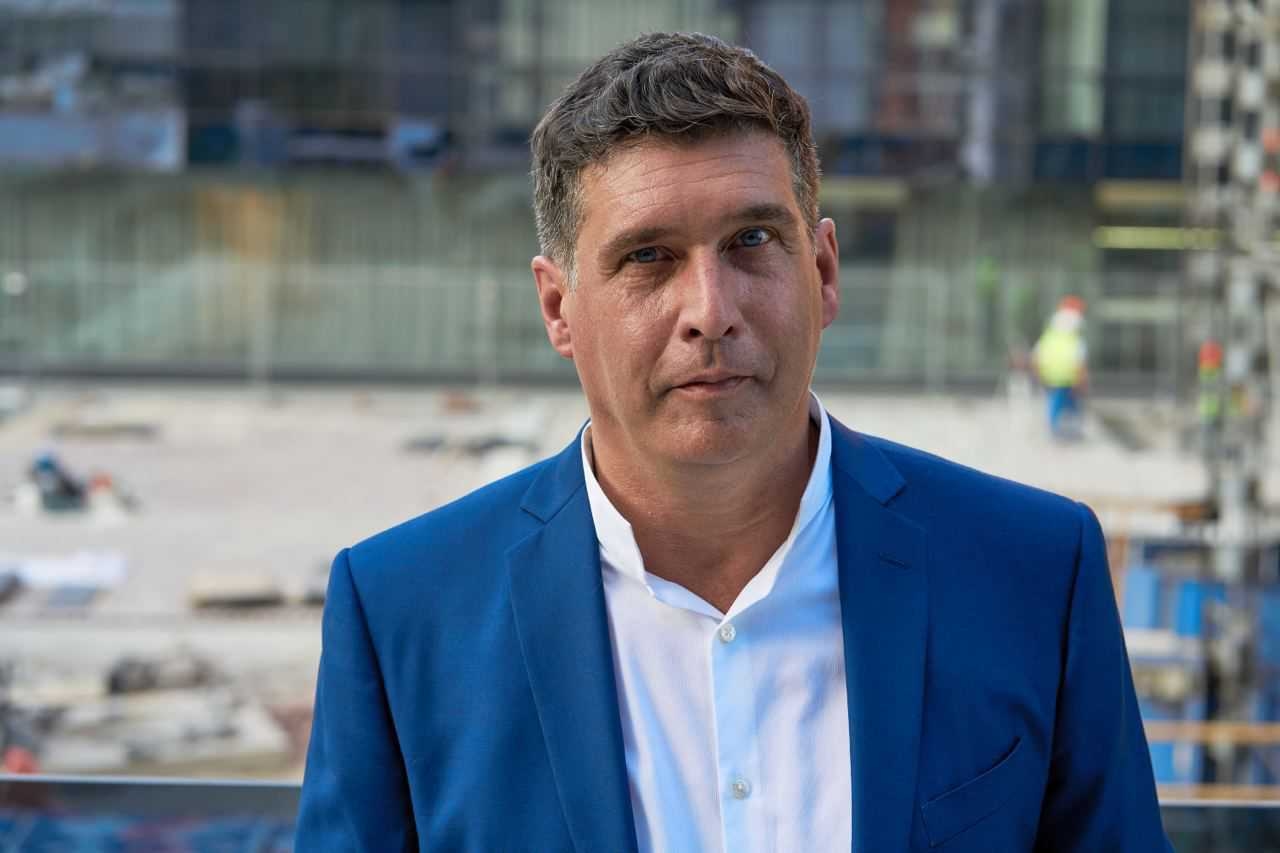
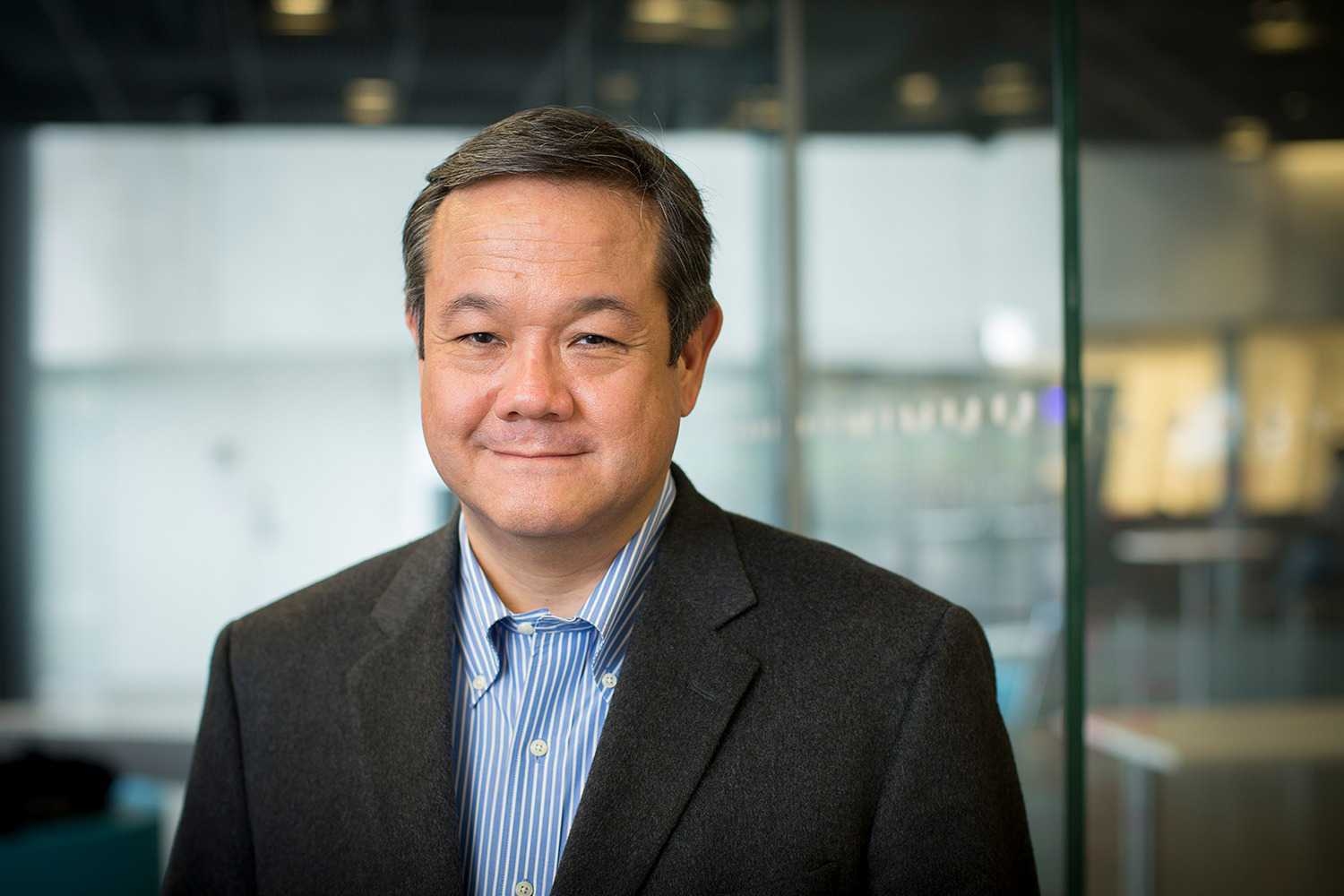
This interview has been edited for clarity.
The Kyiv Independent: Why did you launch the fund now, during Russia’s full-scale invasion?
Whitehead: This is a long-term goal that began a year after Dominique and I met (in 2019). Ukraine put out more tech graduates than pretty much anybody else in Europe. But it was a capital desert, and incredible teams couldn’t get funding.
Today, you have global attention on Ukraine, and it's not humanitarian alone. There are people who understand there's also economic value to Ukraine.
There needs to be a way to continue developing new business and opportunities for veterans, displaced people, people in Ukraine, and people who come back to Ukraine. Revenue generation is important now and will continue to be important for the foreseeable future.
The Kyiv Independent: How does UPTF fit into the context of Europe's Ukraine reconstruction fund?
Piotet: For us, and for the French government, which has been backing us, it's important to anchor this fund with Europe. The idea is to create bridges between Ukraine and Europe.
We have the support of EU4U, the European fund backing EIB in their 15 million euro investment. We also have support from Bpifrance, a French public investment bank. And Proparco, a French development bank.
Unlike the U.S., Europe completely missed Ukraine in terms of tech. It was a place where some European tech companies were doing outsourcing, but that was it.
The Kyiv Independent: Why the focus on tech?
Whitehead: I used to go to Silicon Valley when the highest building was just six floors up. If you look at Kyiv today, even during the war, it has all the elements for Silicon Valley.
After the 2008 financial crisis hit Silicon Valley, the U.S. reviewed startups as the engine for growth. The Obama Administration passed a statute making it easier for tech companies to grow and access capital. And that was because they're the backbone for growth.
It's the same thing in Ukraine. The innovation economy has always been growing, it’s continuing to grow, and I have no doubt it will become a more significant force for Ukraine's economy.
The Kyiv Independent: In what ways does UPTF differentiate itself from traditional VC approaches in terms of strategy and engagement with startups?
Piotet: We are the only ones that invest solely in Ukraine. A lot of our competition invests in Eastern Europe. They say they invest in Ukraine, but it's one or two investments.
We're working with eo Business Incubators, and we have an acceleration program that is de-risking our investment. We're not just a fund; we're really an ecosystem builder.
Whitehead: We want others who are bigger than us to come in. If the tides come in, all the boats will rise, and we want to be the ones encouraging the tide to come in.
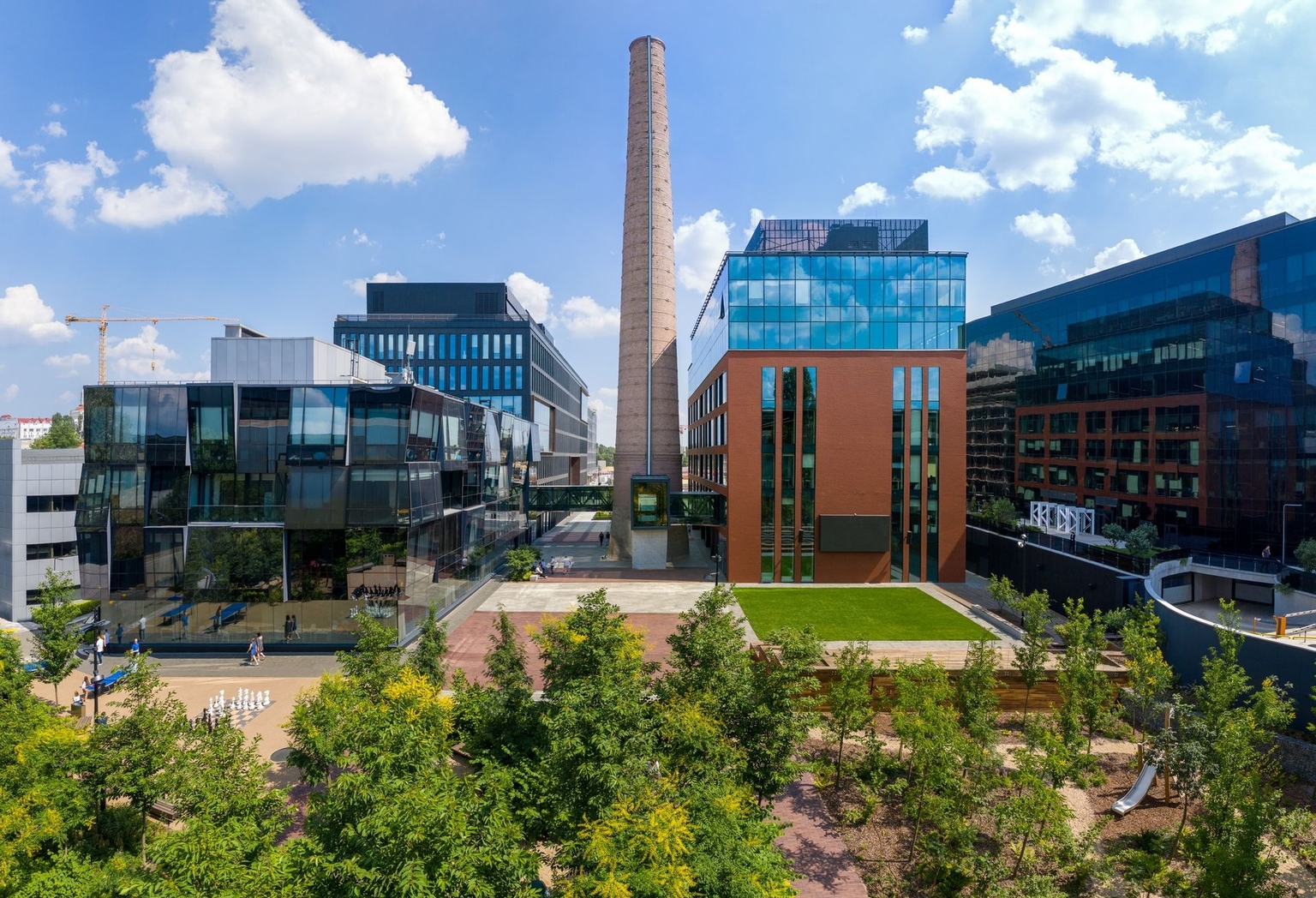
The Kyiv Independent: What do you offer that other funds and programs for Ukrainian startups don't?
Whitehead: Firstly, capital. We've got a 50 million euro fund, which is quite significant in Ukraine. That includes follow-on capital. We're not just investing and moving on. We have the ability to invest multiple times as companies grow.
Secondly, hands-on support. If a startup wants to do distribution in Germany, we know a lot of people in Germany. They want to do distribution in France — hell, who doesn't Dominique know in Paris!
These are people that we have known for years. Five years ago, I'd ask them for help with Ukrainian teams. Now they are reaching out to me, asking how they can help us in Ukraine.
The Kyiv Independent: What have you observed in Ukrainian founders that gives you confidence despite the war?
Whitehead: How decisively they’ve internalized constraint as advantage. Every Ukrainian founder I’ve met builds with the understanding that conditions will not be stable; power may fail, partners may leave, markets may shift overnight, and yet they treat that volatility not as a reason to pause but as a design parameter.
The Kyiv Independent: What message do you want to send to global investors who remain cautious about Ukraine?
Whitehead: Don't be cautious. If you come to Ukraine, you will see the vibrancy of the startup world. This is a world that has an economic return that will only be stronger in the post-war period.
Don't come in after the wave has crested. The wave is now rising.

